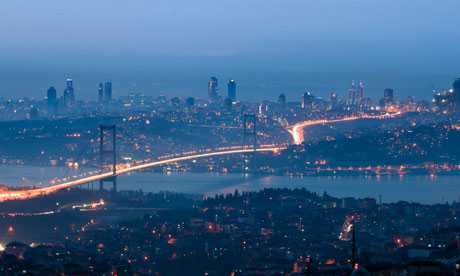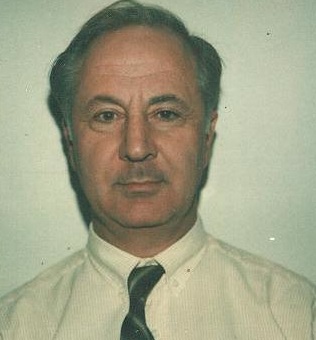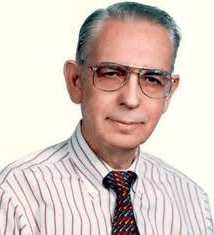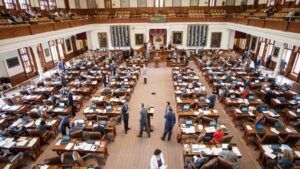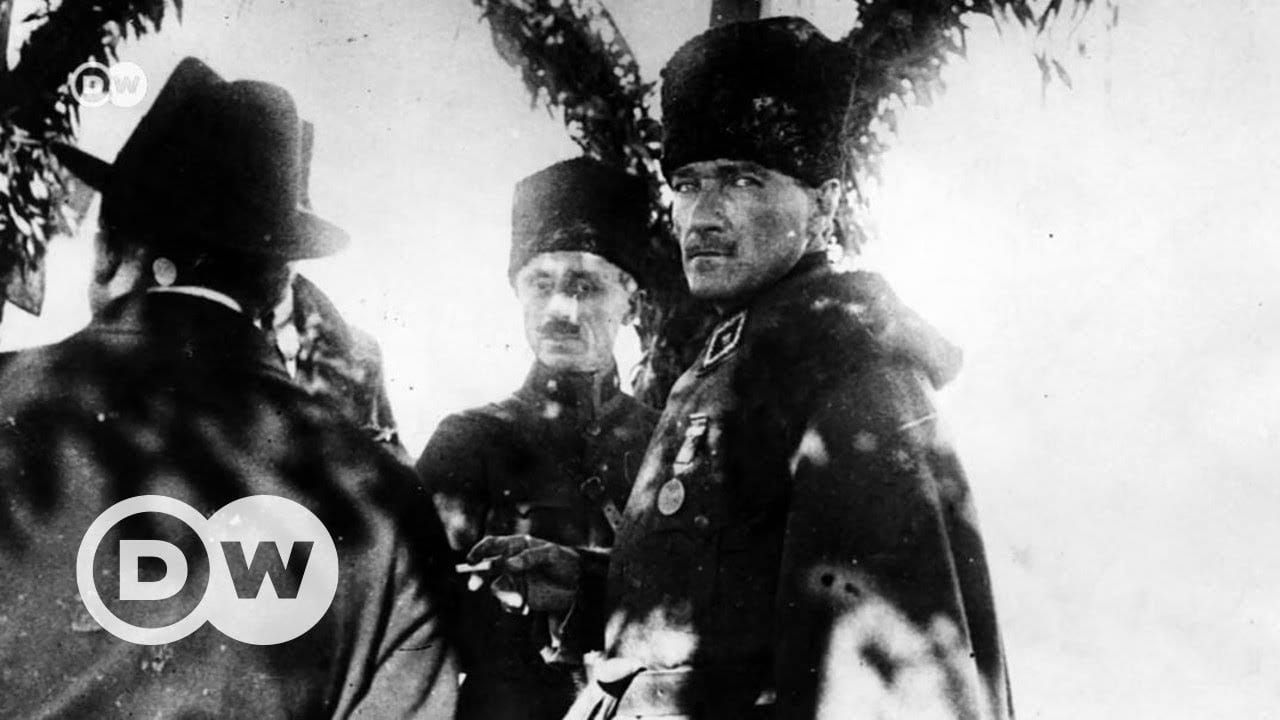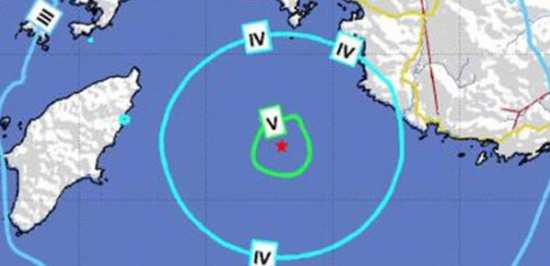A T A T U R K
(1881-1938)
derleyen : Ayhan Özer <ayhan313@verizon.net>:
John F. Kennedy, President of the United States Ataturk, with his historic achievements, was one of the greatest leaders of this century (20th). He was a towering figure of human ideals. His extraordinary leadership and his military genius accomplished so much for his country; first in battlefields, and then in building his nation, materially and in spirit. He created a modern and sovereign state from the ashes of a defeated empire. He was a great peace-maker, an ultimate reformer and a torch-bearer of freedom. He won not only the heart of his nation but the hearts of the oppressed nations as well. We all miss him.
Bill Clinton, President of the United States I have no doubt that Ataturk is the greatest statesman of this millennium as he is the only leader who succeeded to become the leader of the century, not of the year.
Franklin D. Roosevelt, President of the United States In my interview with the Foreign Secretary of Russia, I asked him, to his opinion, who was the most remarkable statesman in Europe; without hesitation, he said the most remarkable statesman in Europe was Ataturk, the President of Turkey.
Following the death of Ataturk: My despair today is that I missed the chance of meeting that great man whom history books glorify lavishly. His achievements are mind boggling.
Claude Farrere, French Author, Member of the Academie Française When I met Ataturk, I was very impressed by his brilliant personality. It is hard to grasp Ataturk fully; he has many aspects, all profound. When I met him personally I admired his insight to the world affairs, his long vision and his articulation. I immediately knew that I was in the presence of an extraordinary leader. I deeply cherish my memories of him.
Winston Churchill, British P.M. If Ataturk had lived today the world would have been a more interesting place. When, in 1915, during our ill-fated Dardanelles campaign fate brought us across in Gallipoli we immediately knew that we were up against a military genius and a formidable strategist. Soon he emerged as a noble warrior. Later he proved himself as a genuine peace-maker and a consummate statesman as well.
Sir Charles Townshend: British General I conducted interviews with fifteen Kings and Presidents. I cannot remember one single incident in which I was as excited and impressed as when I interviewed Ataturk. He is very intelligent and a polished gentleman, he has a captivating personality with enormous power of spirit.
Edouard Herriot, French Statesman Before I met Ataturk, I was deeply impressed by his mind-boggling military successes and his enormous civic achievements that followed. When I met him, I was awe-struck by his personality; in his demeanors the hallmarks of his civility shone through. He is truly a reform-minded leader; in fact, he adopted the Civil Code of Switzerland, and put it in use in Turkey. It takes innovative spirit, civil courage, and a passionate commitment to reforms. That’s statesmanship, and I admire that.
Albert Francois LeBrun, The French President The extraordinary work that Ataturk achieved in the military and the civilian spheres with his sound rational and foresight are unequaled, and they will leave their imprints in the history of mankind.
David Ben Gurion, Israeli P.M. Without any doubt, Ataturk was one of the greatest leaders of the 20th century. He left indelible marks in our times as an ultimate statesman and a preeminent reformer. On the military side, he was a peerless strategist and a victorious commander with exemplary foresight, courage and heroism. He emerged in Turkey, and the Turkish nation must be proud of having produced such an exceptional son.
General De Gaulle, French Head of State When De Gaulle visited Ataturk’s Mausoleum in Ankara to pay respects to his memory, he wrote the following in the Visitor Book: Rest in peace great Ataturk! The flame you kindled burns brilliantly and continues to light our world. And your footprints in history are indelible for those who wish to follow them.
General Douglas MacArthur I don’t know any other person in history who combined military genius and human ideals in his person as brilliantly as Ataturk did. I was fortunate to meet and interview that extraordinary leader in person. Today, I cherish my memories of him fondly and dearly. At this time I look forward to meet him again.
Another Entry from General Douglas MacArthur following Ataturk’s passing. Ataturk was one of the greatest leaders of this century. He placed his country in its rightful place it deserved. He imbued his nation with pride, self-reliance and independence – the most important virtues that make a country great. As a devoted friend of Ataturk, I’ll treasure my good fortune of having met him.
Tarquin Oliver, English actor and producer, “Ataturk: Founder of Modern Turkey” (1999) Considering his military and civic accomplishments, I can say that there is no one in history other than Ataturk who gave so much to his nation, and accomplished so much for his country. He set shining examples of leadership and statesmanship for the entire world.
Lenin, President of Russia M. K. Ataturk is not a socialist; he is an inspiring ` leader with a great mental grasp. He combines in his person an unmatched farsightedness and courage…He is a great leader.
Jorge Blanco Villalta, Argentine Diplomat Ataturk is not only one of the best military leaders, but he is one of the greatest philosophers of the politics as well.
Elefterios Venizelos, Greek P.M. The history of the world does not record any other leader who had achieved such a radical transformation in such a short time as Ataturk was able to put through in Turkey. Ataturk, a great statesman, accomplished this feat masterly; therefore, he deserves to be called one of the greatest leaders in history. I do not remember any other leader in any country who gave so much to his people. The Turkish nation has every right to be proud of him. Note: Mr. Venizelos and Ataturk fought each other at the Turkish War of Independence; yet after the war they made peace, and became allies, and ultimately, friends. Mr. Venizelos nominated Ataturk for the Nobel Peace Prize.
Haydar Aliyev, President of Azerbaijan Ataturk cannot be compared with other statesman in history, because he is so far ahead in every endeavor, and so extraordinary in many aspects. His records are brimming with successes; not a single failure. He is exceptional and peerless.
General Metaxas, Greece Ataturk is a giant personality. He emerged in the world scene at the most critical time of the global conjuncture. His country was defeated in a grueling war and disintegrating. He successfully liquidated the old empire, and created a new dynamic state. He was also a great peace-maker; he extended his hand generously to his old enemies, and made peace with them. He not only won the war, but he won the hearts as well. His work, the new Republic that he founded, stands tall as a monument.
Herbert Melzig, German Scholar Those who strive to reinstate peace and harmony in this suffering world and to create moral and material well-being should study Ataturk’s legendary achievements. The examples of his sagacity, his immutable sense of direction and his capacity for action will light their path.
Comte Carlo Sforza, Italian F.M. Ataturk is a victorious Marshal who later became a civilian President of his country that he had first liberated and then founded. He gave his country dignity and respectability, and put it successfully on the path to progress. He assured its well-being and its absolute safety and security. His deeds are reflections of an impeccable character.
Lord Kinross, Scotch Author of Ataturk’s biography
Ataturk is all at once an ultimate military leader and a man of peace. His military genius saved his country from total destruction, and his statesmanship created a modern nation which he infused with democratic ideals and secularism.
Ma Shao-Cheng, Chinese Author . Ataturk created a dynamic nation, the Turkish Republic, out of a crumbling empire. With his extraordinary deeds that followed he won world-wide respect and admiration.
Professor Morrf, Switzerland I salute and bow my head before this greatest leader of history; he created a young and vibrant nation, The Turkish Republic, which is a respectable member of the world community.
Cornelius Bischoff, German Author Ataturk is a genius nation builder, he created a democratic, modern state on the ruins of an empire.
Gyula Kornis, The President of the Hungarian Parliament Understandably, the Turks called him, “Ataturk”, meaning Father of the Turks. He was in love with his country, and in a short time he was able to put his nation effectively on a productive and progressive path.
Vitali Seremet, Member of the Academy of Sciences of Russia The famous dictum of Ataturk, “Peace at home, peace in the world!” is immortal and reflects his peace-loving character and his shining civility. To me, the greatest accomplishments of Ataturk, besides his unmatched military victories, are his civilian achievements in the fields of reforms and nation building . He is a leader who possesses enormous civic culture.
Arnold Ludwig, German Scholar The prominent German scientist, psychiatrist and academician Arnold Ludwig conducted an 18-year research, which he entitled “The Nature of Leadership”. He studied leaders from around the world who lived in the 1900-2000 time span. He developed a “Political Greatness Scale”. After the first screening the number of the candidates was reduced to 377 prominent statesmen, military heroes and politicians; they all influenced the world in one way or another. Ataturk scored highest among all the candidates.
Professor Ludwig explains his procedures as follows: “During those 18 years, I reviewed more than 1200 biographies, articles, books, personality profiles, and Doctoral theses. I also reviewed the character descriptions, anecdotes and testimonies about the candidates. Those sources helped me develop my scale. The highest-point accomplishments in this scale were to create a nation, being victorious in the wars, gaining territory, the duration of their stay in power with the will of their people, military successes, social engineering, transforming the people in a progressive way, improvement in the economy, sound ideology, statesmanship, ethics, anti-corruption, political heritage, and population profile of their countries, i.e. has the welfare of the people improved, has the level of education moved up? From this study I excluded the social life, as it is personal and open to speculations; I considered only the concrete and measurable values.
Based on this scale, Ataturk scored highest. Another group conducted a similar research, and based on their criteria Ataturk came out first in their study also. What are the elements of “Political Greatness?” The first one is to create something out of nothing. In this area, Ataturk was far ahead of the other participants and got the highest point; because, he created a new state, the Turkish Republic, out of the defeated and collapsed empire. Also, he defeated his enemies, and recovered effectively the lost territories under the Treaty of Sevres (1920) by bringing the Treaty of Lausanne (1924) into effect. This was a major factor in my evaluation. Also, Ataturk was able to maintain his position long years without resorting to illegal means, or without any foreign support. Another strong point for Ataturk was his military achievements. Ataturk was a winner in all the wars he engaged. In Dardanelles during World War I and in the Gallipoli campaign he proved himself as a legendary strategist. He was the mastermind of the Turkish War of Independence, which was the culmination of his epic victories. This is another very important point. Ataturk’s strongest assets are his accomplishments in the civilian life. He was an ultimate social engineer. The reforms he put through effectively in a short time are mind-boggling. Such as women’s rights, including the rights to elect and to be elected, Secularism, adoption of a new Civil Code, adoption of the Latin Alphabet, Dress Code, and to free the education and the judiciary from the grips of religion. We can cite other elements of his social engineering, such as an improved economy, statesmanship, a masterly diplomacy, friendly relations with neighboring countries, his political inheritance, and his moral example for his nation. This includes not being corrupt or venal, being principled and upright, not to commit embezzlement, not to act like member of a dynasty, absolute devotion to his people…In all these areas Ataturk scored the highest, and thus he became the “Legendary Leader.”
Sucheta Kripalani, President of the Indian Parliament Ataturk was not a leader only for the Turkish nation; he was a banner of freedom for all the subjugated nations that strived for their independence. The Turkish nation won its independence through the active leadership of Ataturk, and we won ours by following his example and heeding his spiritual guidance.
Eyub Khan, President of Pakistan M.K. Ataturk is not only the leader of this century. We, in Pakistan, believe that he is one of the greatest leaders of all time. A military genius, a peerless social engineer, and a natural-born leader.
Emanullah Khan, King of Afghanistan After his passing, I personally and all the Afghan nation are in deep sorrow, and I am at a loss to find words to express my grief. Ataturk was the father of the Turkish nation, and also he was the father of many other nations that look to him as a spiritual savior.
UNESCO “Ataturk is a gift of history to his nation as well as to humanity.” This statement issued by UNESCO in 1963 called Ataturk “A true symbol of honor for the humanity. Today, many projects that UNESCO is working on are inspired by Ataturk.”
In the meeting of the United Nations General Assembly on November 27, 1978 the following Resolution was adopted:
“Believing that the work of world leaders who toiled for the understanding, cooperation and peace among the world nations will set an example for the future generations, the General Assembly resolved that the year 1981 which is the 100th anniversary of Ataturk, the founder of the Republic of Turkey, be recognized.”
In 1981, Ataturk’s 100th anniversary, the General Assembly of UNESCO, a body of 156 member states, unanimously issued a Proclamation declaring 1981 as “Ataturk’s Year”. It was unanimously adopted, no abstentions, no dissentions. It stated, “An extraordinary leader who promoted peace and understanding among the nations, a great reformer, the first statesman who fought imperialism and colonialism in the world, champion of human rights, a pioneer of world peace, a peerless leader who transcends differences in color, in religion and in race, and the founder of the Turkish Republic.” ***

